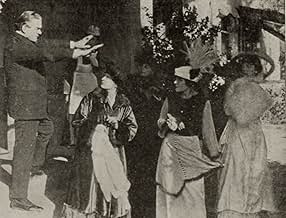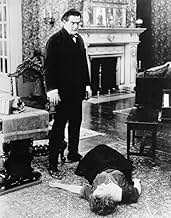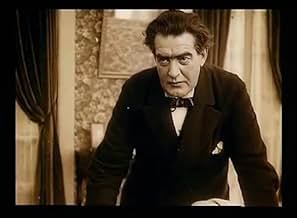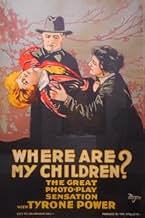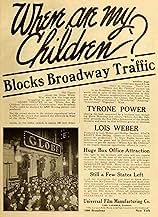अपनी भाषा में प्लॉट जोड़ेंA District Attorney's outspoken stand on abortion lands him in trouble with the local community.A District Attorney's outspoken stand on abortion lands him in trouble with the local community.A District Attorney's outspoken stand on abortion lands him in trouble with the local community.
- पुरस्कार
- कुल 1 जीत
Tyrone Power Sr.
- District Attorney Richard Walton
- (as Mr. Tyrone Power)
Mrs. Tyrone Power
- Mrs. Richard Walton
- (as Helen Riaume)
Alva D. Blake
- Roger - Mrs. Walton's Brother
- (as A.D. Blake)
George Berrell
- Judge
- (बिना क्रेडिट के)
Georgia French
- Child
- (बिना क्रेडिट के)
Mary MacLaren
- Walton's Maid
- (बिना क्रेडिट के)
Andy MacLennan
- Man on Street
- (बिना क्रेडिट के)
Anne Power
- Infant
- (बिना क्रेडिट के)
फ़ीचर्ड समीक्षाएं
10gonboy67
What audiences of 80-plus years ago must have thought of this film is unimaginable....very provocative, powerfully written and acted. With a few expansions the story could even be interesting today: pro-life District Attorney finds out the secret behind all the childless marriages in his party-hopping wife's social circle. Final scene so bittersweet..and on the lighter side, some excellent women's fashion from the era in costuming. Highest recommendation.
I saw this silent movie late last evening on Turner Classic Movies. It surpassed my expectations (especially being that there was no sound and that it was made in 1916!); I could not take my eyes away. The interesting concept of "the place where unborn children are" was very powerful. The emotions portrayed in this movie very very strong; excellent acting by all. It is a movie that I will never forget, am still thinking about it today-it was that moving!
This is a heavy-handed, didactic melodrama that nevertheless doesn't descend to mere propaganda. Although a eugenics perspective is introduced in the beginning it is never explored even though it could have presented an excellent opportunity for conflict in Tyrone Power's character and situation. Most of the rest of the film is trite in its portrayal of a pristine young woman whose character and life are destroyed by an evil, sneering, all-but-drooling villain. Missing is an exploration of how such a young woman could succumb to this man. Instead, much time is spent in melodramatic mugging and obvious titles. Too bad, because the final scenes show brilliant early cinematic narration, making all the film's points more dramatically than the entire rest of the film.
This remarkable film has sometimes been described by historians as a movie about birth control, but it isn't, although birth control is presented as an alternative to abortion, which is the film's true subject. "Where Are My Children" is probably the most forthrightly anti-abortion movie ever made by a mainstream American studio, and how Lois Weber got away with it, I'll never know; a film like this couldn't possibly be made today.
I have no objections to a filmmaker using a movie as a vehicle for his or her convictions, as long as they're honest about it, and this movie is honest. Weber follows the logic of her plot, and her convictions, right to their end, without flinching from the logical and merciless conclusion. This is a gripping and powerful tragedy, well acted, written and directed. There is one unforgettable moment in which a quiet little gesture by Helen Riaume tells volumes; she has taken her friend to a doctor who performs abortions (and has done so for her), and while lingering in the waiting room, Helen yawns, as if terminating a pregnancy is a completely casual matter. It is a perfect, subtle sign about the depth of her corruption.
"Where Are My Children" isn't perfect; the scenes of souls in Heaven's antechamber, "waiting to be born," are a little heavy-handed, even if they give Weber the chance to use the trick photography she was so fond of. But the skill with which this movie is made is remarkable for 1916; this is a much more powerful movie than Griffith's "Intolerance," the most famous film of that year. I was amazed by "Where Are My Children," and I will never forget it.
I have no objections to a filmmaker using a movie as a vehicle for his or her convictions, as long as they're honest about it, and this movie is honest. Weber follows the logic of her plot, and her convictions, right to their end, without flinching from the logical and merciless conclusion. This is a gripping and powerful tragedy, well acted, written and directed. There is one unforgettable moment in which a quiet little gesture by Helen Riaume tells volumes; she has taken her friend to a doctor who performs abortions (and has done so for her), and while lingering in the waiting room, Helen yawns, as if terminating a pregnancy is a completely casual matter. It is a perfect, subtle sign about the depth of her corruption.
"Where Are My Children" isn't perfect; the scenes of souls in Heaven's antechamber, "waiting to be born," are a little heavy-handed, even if they give Weber the chance to use the trick photography she was so fond of. But the skill with which this movie is made is remarkable for 1916; this is a much more powerful movie than Griffith's "Intolerance," the most famous film of that year. I was amazed by "Where Are My Children," and I will never forget it.
Quite interesting film given its time and subject matter: birth control and abortion in pre-WW I America. There's even some mention of Eugenics, which was quite a popular theory of that time. I will avoid any spoilers but the movie is pro-birth control and very heavy-handily anti-abortion. But, inadvertently, the moral case is made for safe and legal abortions!
क्या आपको पता है
- ट्रिवियाThe two children of Tyrone Power Sr. and his co-star and real-life wife Helen Reaume (aka, Mrs. Tyrone Power), appear in this film: their newborn daughter Anne Power and their two-year-old son Tyrone Power, who became a matinee idol from the 1930s to the 1950s. He appears in the last minute and a half of the movie as a "ghost child".
- भाव
Opening Title Card I: The question of birth control is now being generally discussed. All intelligent people know that birth control is a subject of serious public interest. Newspapers, magazines and books have treated different phases of this question. Can a subject thus dealt with on the printed page be denied careful dramatization on the motion picture screen? The Universal Film Mfg. Company believes not.
- इसके अलावा अन्य वर्जनIn 2000, the Library of Congress Motion Picture Conservation Center copyrighted a preservation print reconstructed from several incomplete prints. Funded by the Women's Film Preservation Fund of New York Women in Film and Television, it was coordinated by Scott Simmon, has a piano score composed and performed by Martin Marks, and runs 62 minutes.
- कनेक्शनEdited into Governing Body (2023)
टॉप पसंद
रेटिंग देने के लिए साइन-इन करें और वैयक्तिकृत सुझावों के लिए वॉचलिस्ट करें
विवरण
- रिलीज़ की तारीख़
- कंट्री ऑफ़ ओरिजिन
- भाषाएं
- इस रूप में भी जाना जाता है
- The Illborn
- फ़िल्माने की जगहें
- उत्पादन कंपनियां
- IMDbPro पर और कंपनी क्रेडिट देखें
- चलने की अवधि1 घंटा 2 मिनट
- ध्वनि मिश्रण
- पक्ष अनुपात
- 1.33 : 1
इस पेज में योगदान दें
किसी बदलाव का सुझाव दें या अनुपलब्ध कॉन्टेंट जोड़ें


